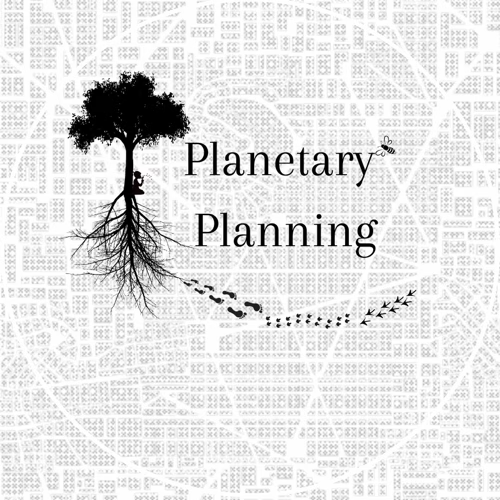
Finding Our Multiple Identities, and Our Agency, with Liz Challinor
In this episode, we speak with Liz Challinor, researcher in anthropology at the Centre for Research in Anthropology (CRIA) of the New University of Lisbon, as well as fiction and poetry writer. She shares her reflections on categories along which we see others - and ourselves - and how it is often forgotten that we have multiple identities, when in fact this is crucial. In fact, creating connections between those multiple identities might be key. Although the more-than-human lens is not Liz’s field, it becomes clear that at least some of what she has studied among humans is likely to also count between humans and more-than-humans (in themselves categories that may better be transcended, perhaps).
Liz highlights the a-historical and a-political approaches that have become more dominant in regards to people crossing borders, essentializing the question of identities and cultures of people often to harmful extents. She also points to how calling out a “crisis” (be it a refugee (or refuge?) crisis, a housing crisis, or a “polycrisis”) can make one feel without agency, hopeless, when in fact we humans have a lot of agency - as well as responsibility for the consequences we now witness.
Perhaps as a way to connect our multiple identities with our agency, we go on to speak on the important role that various arts forms, and especially fiction and poetry, can have for bringing back some of the emotion and intuition - and some careful playfulness, too - that is involved in human relations, but that more academic or “scientific” or “rigour-based” approaches tend to reject. Perhaps there is a place for all these approaches, but writing is certainly a legitimate and perhaps even crucial one to maintain as part of our inquiries.
Take-aways for planners, by Liz Challinor:
* Recognize Planning as presence
* Engage with Planning as not only about avoiding disruption, but rather also about being open to disruption, and knowing how to welcome it and realize what it’s bringing
References:
Challinor, E. (2018). "Cross-border citizenship: mothering beyond the boundaries of consanguinity and nationality". Ethnic and Racial Studies 41 1: 114-131. https://doi.org/10.1080/01419870.2017.1293278
Challinor, E. (2019). When does difference matter? Border-generating categories in the lives of foreign nationals in northern Portugal. International Journal of Migration and Border Studies, 5(4), 308. https://doi.org/10.1504/IJMBS.2019.105811
Challinor, E. (2022). Who Marks the Borders of the (Un)Known? Relational Reflexivity in the Production of a Play on Forced Mobility in Northern Portugal. In N. G. Ortega, & A. B. M. García (Eds.), Representing 21ST-Century Migration in Europe: Performing Borders, Identities and Texts (1st ed., pp. 208-223). Berghahn Books. https://doi.org/10.1515/9781800733817-014
Challinor, E. (2024). Navigating through the Cracks of the State System: Shifting Spaces of Hope in the Portuguese Mobility Regime. Anthropological Quarterly 97(1), 95-124. https://dx.doi.org/10.1353/anq.2024.a923085
Horgan, M. (2012). Strangers and Strangership. Journal of Intercultural Studies, 33(6), 607–622. https://doi.org/10.1080/07256868.2012.735110
Maalouf, A. (2012). In the name of identity: Violence and the need to belong (B. Bray, Trans.). Arcade Publishing.
Sacramento, O., Challinor, E., & Silva, P. G. (Eds.). (2020). Quest for Refuge. Reception Responses from the Global North. Edições Húmus.
This is a public episode. If you would like to discuss this with other subscribers or get access to bonus episodes, visit planetaryplanning.substack.com